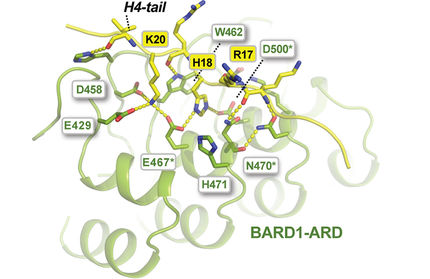Damaged DNA amplified
Advertisement
In the majority of cases, the onset of cancer is characterised by a minor change in a person's genetic material. A cell's DNA mutates in a particular area to the extent that the cell no longer divides in a controlled manner, but begins to grow uncontrollably. In many cases, this type of genetic mutation involves chemical changes to individual building blocks of DNA. These changes are induced by smoking tobacco and consuming foods such as cured meats. This is because the contents of these materials can chemically react with and change building blocks of cellular DNA, thereby creating DNA adducts. Up to now, scientists have been able to determine whether gene samples contain adducts and if so, how many. However, the procedure is laborious and finding out exactly where a building block in the genetic code has been altered into an adduct has not been possible.
Researchers from the team led by Shana Sturla, professor of Food and Nutrition Toxicology, have succeeded for the first time in amplifying gene samples containing DNA adducts while retaining references to these adducts. This type of amplification is a prerequisite for the majority of technologies used by researchers to determine a gene's DNA sequence. In the future, it may therefore be possible to expand DNA sequencing from the four basic DNA building blocks to include adducts. "The scientific community would have an important tool for making a detailed analysis of the molecular mechanisms involved in the initiation of cancer and the corresponding risk factors," says Sturla.
Artificial counterpart found
The researchers focused their efforts on a specific, typical DNA adduct, an alkylguanine called O-6-benzylguanine. They recreated an enzyme reaction in a test tube to obtain a negative copy of the genetic material - analogous to how DNA is replicated naturally in cells. The scientists first had to find an artificial counterpart of the alkylguanine to be incorporated into the negative copy in its position - due to the fact that nature produces molecular counterparts to the basic DNA building blocks, but not to DNA adducts. This is why replicating genes usually leads to copy errors (or mutations) when adducts are present.
The ETH researchers produced several artificial derivatives of the basic DNA building blocks in the laboratory and tested them as potential counterparts to the alkylguanine. One proved particularly suitable. The researchers were then able to produce a negative copy of a gene containing the alkylguanine.























































